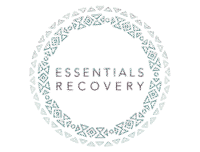Recovery from addiction is often described as a journey, one that can be challenging, transformative, and deeply personal. While determination and personal commitment are essential, no one succeeds in recovery entirely on their own. A strong recovery community provides the support, encouragement, and accountability needed to sustain sobriety and foster long-term personal growth. Joining a community of individuals who understand the journey can create a sense of belonging, reduce isolation, and reinforce healthy habits. Finding the right community—or your “tribe”—is a powerful step toward lasting recovery.
Understanding the Concept of a Recovery Community
A recovery community is a group of individuals who share the goal of maintaining sobriety and supporting one another in the process. These communities can take many forms, including local support groups, peer mentoring networks, structured recovery programs, or online communities. What unites these groups is the shared understanding of the challenges of addiction and a commitment to personal growth and accountability.
Being part of a recovery community offers a safe environment where individuals can share experiences, challenges, and successes. The community provides a sense of structure, encouragement, and understanding, helping participants navigate the often unpredictable path of recovery. Unlike social circles outside recovery, these communities are grounded in empathy, trust, and a collective commitment to sobriety.
The Importance of Connection in Recovery
Addiction can isolate individuals, damaging relationships with family, friends, and society. A recovery community helps counteract this isolation by fostering connections with others who understand the struggles of addiction. The feeling of belonging reduces loneliness, builds confidence, and encourages engagement in healthy social interactions.
Connection in recovery is not just about socializing—it is about forming relationships built on trust, shared goals, and mutual support. These relationships provide encouragement during difficult moments, offer accountability when temptation arises, and celebrate milestones that mark progress in sobriety. The emotional and social support derived from a recovery community can be as important as any formal treatment program.
Exploring Different Types of Recovery Communities
Recovery communities vary widely, offering diverse approaches to support. Some communities follow structured models like 12-step programs, which emphasize accountability, personal reflection, and spiritual growth. These programs provide a step-by-step framework for recovery and encourage members to support one another in meaningful ways.
Other communities adopt non-12-step approaches, focusing on cognitive behavioral strategies, personal empowerment, and peer mentorship. These programs may prioritize education about addiction, coping skills, and practical strategies for maintaining sobriety. Online recovery communities also provide accessible support for individuals who may face geographic, mobility, or scheduling challenges.
Local support groups often offer in-person meetings that provide a sense of immediacy and personal connection. These gatherings allow individuals to build close relationships, share experiences in real time, and receive guidance from peers who have navigated similar challenges. Whether online or in-person, the key is finding a community that aligns with personal needs, preferences, and values.
Peer Support and Mentorship
One of the most impactful aspects of a recovery community is peer support. Individuals who have experienced addiction firsthand offer empathy, understanding, and guidance that cannot always be replicated in professional settings alone. Peer mentors often help new members navigate the early stages of recovery, providing practical advice, encouragement, and accountability.
Mentorship within a recovery community also benefits the mentor. Guiding others strengthens their own commitment to sobriety, reinforces coping strategies, and fosters a sense of purpose. These relationships are mutually beneficial, creating a cycle of support that enhances the overall strength of the community.
Accountability and Structure
Accountability is a core component of any effective recovery community. Members are encouraged to attend meetings, engage in discussions, and adhere to personal recovery goals. Knowing that others are invested in their progress motivates participants to remain committed to their sobriety.
Recovery communities often provide structured activities, such as group discussions, workshops, and skill-building sessions, that reinforce healthy behaviors. This structure helps individuals develop routines, maintain focus, and navigate challenges more effectively. By integrating accountability and structured support, recovery communities create an environment that fosters long-term success.
Emotional Support and Coping Strategies
Recovery is an emotional as well as a physical process. Recovery communities offer emotional support by providing a space for individuals to share feelings, frustrations, and fears. Participants gain reassurance that their experiences are valid and that setbacks are part of the recovery journey.
Through community engagement, individuals learn coping strategies that help manage stress, avoid triggers, and navigate daily challenges. Group discussions often highlight practical techniques for handling cravings, improving communication, and building resilience. The emotional support and coping skills gained through a recovery community are essential for maintaining long-term sobriety.
Social Engagement and Rebuilding Connections
Joining a recovery community also encourages positive social engagement. Many individuals in recovery rebuild relationships with family, friends, and colleagues through the encouragement and guidance offered by their community. These communities model healthy social interactions, helping participants develop trust, empathy, and effective communication skills.
Social engagement within a recovery community extends beyond meetings. Many groups participate in volunteer work, recreational activities, and community events. Engaging in these activities fosters a sense of purpose, reinforces sobriety, and helps individuals integrate their recovery into everyday life.
Overcoming Barriers to Joining a Community
While the benefits of a recovery community are clear, some individuals may face challenges in joining or engaging fully. Social anxiety, fear of stigma, or past negative experiences with groups can create hesitation. Others may struggle with transportation, scheduling, or access to local resources.
These barriers can be addressed by exploring different types of communities, starting with online groups, or attending meetings with a supportive friend or mentor. Gradual engagement helps build confidence and trust, allowing individuals to fully experience the benefits of community involvement. Persistence and openness are key to finding a community that feels safe, supportive, and aligned with personal recovery goals.
Integrating Community Support with Professional Treatment
Recovery communities are most effective when integrated with professional treatment programs. Therapists, counselors, and medical professionals provide guidance, evidence-based interventions, and ongoing monitoring that complement peer support.
Combining professional care with community engagement ensures that all aspects of addiction—physical, emotional, and psychological—are addressed. Professionals can provide strategies for managing triggers, navigating relapse risks, and improving overall well-being, while the community offers encouragement, accountability, and social connection. Together, these elements create a comprehensive support system that enhances the likelihood of sustained recovery.
Sustaining Long-Term Engagement
Maintaining involvement in a recovery community is essential for long-term success. Recovery is an ongoing process, and continued participation ensures that individuals remain connected, motivated, and supported.
Many recovery communities encourage members to take active roles, such as mentoring newcomers, leading discussions, or organizing events. This active engagement reinforces personal growth, strengthens relationships, and contributes to a sense of purpose. Long-term participation also provides opportunities to celebrate milestones, reflect on progress, and continue developing coping skills that sustain sobriety.
The Transformative Power of Belonging
Belonging to a recovery community is transformative. It offers validation, emotional stability, and social connection, all of which are critical for maintaining sobriety. Participants learn that they are not alone, that recovery is achievable, and that their contributions matter.
The sense of shared purpose and mutual support within a community helps individuals develop confidence, resilience, and hope. Over time, these connections become a source of strength that empowers participants to navigate challenges, embrace personal growth, and maintain a fulfilling, substance-free life.
Conclusion: Finding Your Tribe
Finding and joining a recovery community is a vital step in the journey toward lasting sobriety. These communities provide emotional support, accountability, practical guidance, and opportunities for personal growth. By connecting with individuals who understand the challenges of addiction, participants gain a network of encouragement and shared wisdom that strengthens their recovery.
Recovery is not meant to be walked alone. By seeking out a supportive community and actively engaging in its activities, individuals can find their tribe—an empowering group of people who motivate, inspire, and uplift one another. Belonging to a recovery community fosters connection, resilience, and long-term success, providing the tools and relationships necessary to build a fulfilling life in sobriety. Call us today at 855-509-1697.



